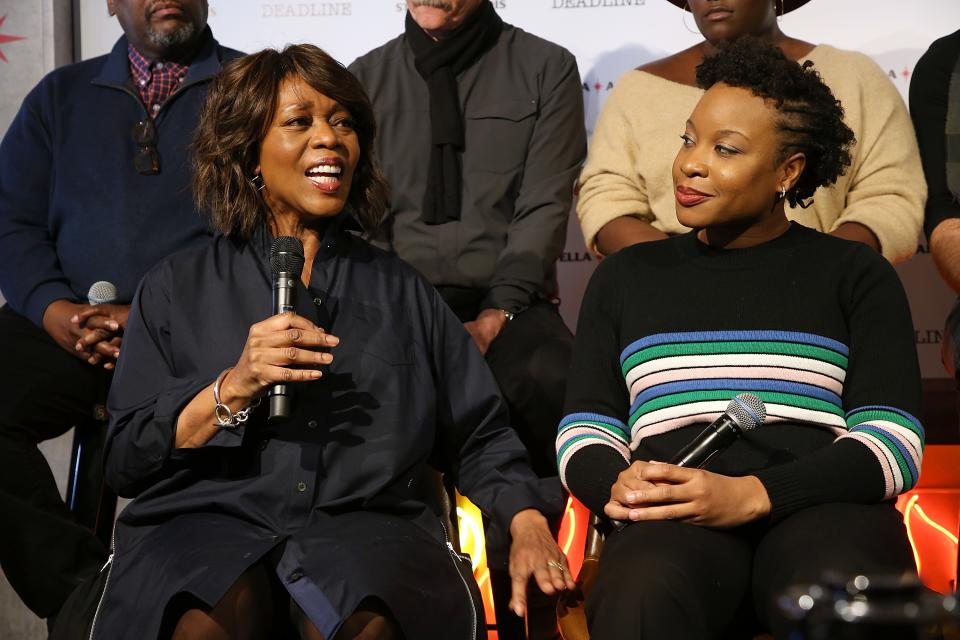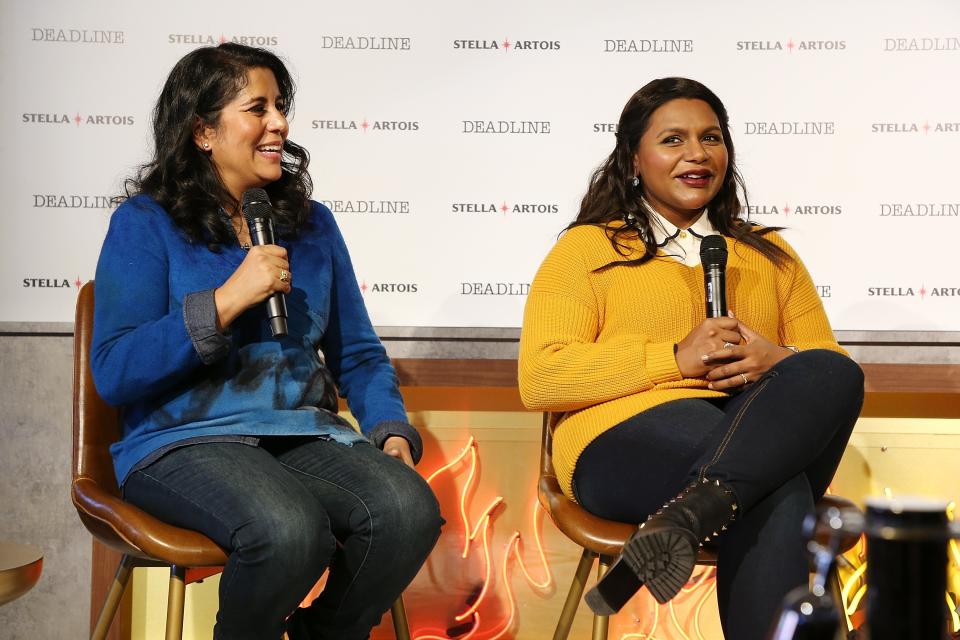This Year's Sundance Film Festival Was Big for Female Directors
Women directed 46 percent of the competition films at Sundance Film Festival this year, according to Indiewire. It's not full gender parity, no—but it is a significant step forward.
That momentum was felt throughout the festival, as some of the biggest headlines were about female-led films. Nisha Ganatra directed Late Night, a comedy about a female talk show host that was picked up by Amazon for a record-breaking amount. The four Grand Jury Prizes all went to films directed or co-directed by female filmmakers: Clemency (Chinonye Chukwu), One Child Nation (Nanfu Wang), The Souvenir (Joanna Hogg), and Honeyland (Tamara Kotevska and Ljubomir Stefanov). One of the most-anticipated movies at the festival was Shia LaBeouf's deeply personal, autobiographical Honey Boy, which was directed by Alma Har'el. (She won the Special Jury Award for Vision and Craft for it.)

Stella Artois & Deadline Sundance Series At Stella's Film Lounge: A Live Q&A With The Filmmakers And Cast Of "Clemency"
Beyond the screenings, even the brand-sponsored parties and panels were focused on supporting female directors and emerging talent. Take Stella Artois—the brand partnered with Women in Film for multiple events, including one honoring the recipients of a grant intended to help female filmmakers "inspire social change." Another panel was dedicated to the success stories of ReFrame, the coalition of industry professionals founded by Women In Film and the Sundance Institute whose mission is to increase the number of women working in film, TV, and media.
TL;DR: This year's Sundance Film Festival was big for women. So, below, I talked to three of those directors about their films, their success, and more.
Late Night
Late Night—written by The Office writer and star Mindy Kaling and directed by Nisha Ganatra—was one of the buzziest films of the festival, and for good reason: It's brilliant. The movie stars Emma Thompson as the witty, fierce host of a long-running late night talk show. She recruits Kaling's character essentially as a diversity hire, but what follows is an extremely funny, but still heartwarming, story about hard work and mentorship.
The movie is so good, in fact, Amazon bought it for a whopping $13 million—a record for Sundance Film festival at the time. "I think this movie setting a record at Sundance is so important because the leads are a woman over the age of 50 and a woman of color," director Nisha Ganatra told Glamour following a Sundance Film Festival panel for Late Night hosted by Stella Artois and Deadline. "That, sadly, is radical alone, but there was so much talk of 'Oh my God, will this make money? Is this marketable? Who will go see this?' The fact that this movie broke the record at Sundance is so significant and so exciting and so amazing because it validates that you can tell your story. You can tell the story that people don’t think is worth telling, and it will find its audience and people will reward you for it."
Dirty God
Written and directed by Sacha Polak, Dirty God tells the story of Jade (Vicky Knight), a young woman whose life is forever changed by an acid attack that leaves her severely burned and scarred. In the aftermath of the attack, Jade struggles to navigate still feeling young, beautiful, and sexy with the constant looks and comments she gets because of her scars. Polak was inspired to write this story after she saw a woman at a music festival with burns on her face—everyone around the young woman would look, then quickly look away. "And then I was in London a lot, and I heard about these acid attacks [that were happening at the time]," Polak says. "Mainly, they were men doing it to women: If you’re not beautiful for me, then you can’t pretty for anyone."
It's a moving film, in large part thanks to Knight's performance. This is the first film for the actress, who herself has scars. "I think she brought so much more to the story," Polak says. "She’s such a cool, strong person. [When I cast her,] I felt she would not make a victim of Jade."
Judy & Punch
Judy & Punch is essentially a fictional origin story for the Punch and Judy puppets—with a feminist revenge tale driving the action. To say more would spoil the movie, and this is best seen without knowing too much so every twist and turn has maximum punch (pun not intended). Director and screenwriter Mirrah Foulkes says her goal was to make something that felt "truly unique and wild." Done and done.
As for the increase of female directors at the festival, Foulkes thinks it's "wonderful"—but that it should really rest on people in development to support new and unique female voices. "That means that emerging filmmakers will have the opportunity to tell our stories and create good films," she explains. "Hopefully those films will be seen for their merit. ... You never want to believe that you’re at a film festival [just] because you’re a woman or that you’ve won awards because you’re a woman. You want to believe that you’re there because you’ve made something that people like."
Travel and expenses for the author were provided by Stella Artois. However, all reviews and interviews remain editorially independent.


